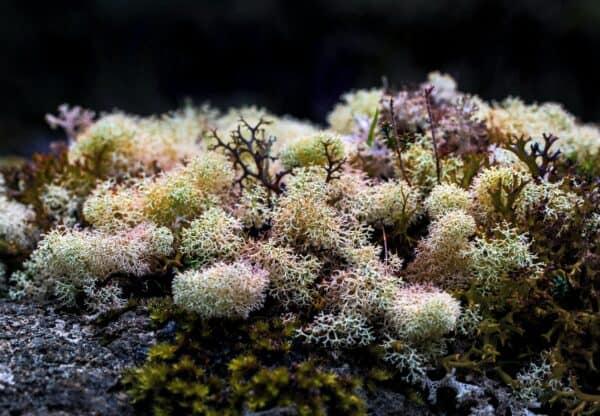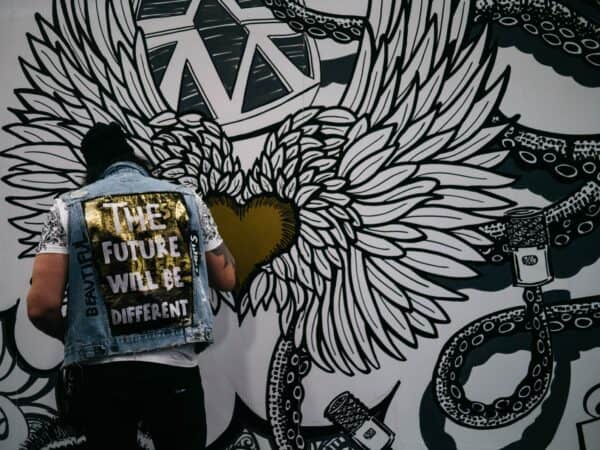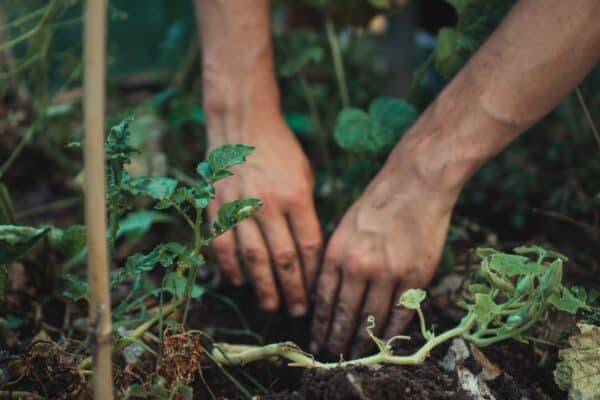To take care of something – to be a steward of something, whatever it is – is something we want to celebrate. The very notion is inherently life-giving.
Caretaking, on the other hand, is a terminology used to describe co-dependent relating, where we in fact, enable degenerative behaviours, through self-abandonment.
This topic is at the heart of my life’s work and the book I am writing this year.
Not many people know that caretaking is an addiction.
I am proudly in my 13th year of dedicated healing, and along the way of seeing ever more clearly and becoming ever more sober to the reality that is available to us once we shift into autonomous, interdependent ways of being doing life together on this planet – I have become fascinated, bordering on obsessed – with how caretaking shows up in those of us who might describe ourselves as change makers.
A thing I keep repeating is this: we can’t give what we don’t have ourselves, so if we want to become nurturers – of families, organisations, communities, neighbourhoods, municipalities, schools, hospitals, businesses – one of the most important things we must do is to understand the difference between nurturing and caretaking and how it shows up in ourselves. In our ancestral family history, and in the wider web of our human family.
Caretaking shows up in subtle and not so subtle ways.
Ways that hinder our ability to actually walk our talk.
Ways that hinder our ability to enjoy and celebrate our lives.
Ways that hinder regenerative pathways to truly forge.
Ways that ultimately keep us stuck in the status quo.
Curiously, when we are enmeshed in co-dependent ways to relating, we will more often than not perceive nurturing to be:
- ‘Less than’ providing logic and information
- Fluffy and ethereal
- An energy/service to give us what we need, when we need it (instant gratification), or
- Mostly unnecessary, maybe a nice-to-have
But the truth is, nurturing is none of these things.
And when we relate to the nurturing in this way, chances are we carry a Mother wound, a wound most of us immersed in a society separated from the Earth, at birth, do.
This wound also makes us crave nurturing deep down, even though we are terrified of the emotional closeness it requires of us as the receiver.
At the heart of nurturing is the ability to nurture ourselves and to nurture another’s ability to nurture themselves. Not to become either greedy, needy or fiercely independent, but to lead themselves well, and build inner capacity for interdependent relating.
Which means that there will not be any true nurturing unless it includes courageously mirroring back when we are not showing up in right relationship. This is often an uncomfortable process that can trigger both guilt and shame, even though nurturing is never shaming by its very nature.
Nurturing is showing up with a beautiful blend of unconditional love and steadfast, breathable boundaries.
Nurturing is about being embodied and enabling embodiment in others – the old system survives to large extent because we are disembodied – always going somewhere, never fully here because we run from the past and think future success will cure our feeling of never being or doing enough.
Nurturing is gentle and soft, fierce and fiery, loud and calm, grounded and spicy, fragrant and still, all at the same time. It’s neither a distinctly feminine or masculine quality.
Each of us have a unique flavour.
And each of us and all of us – if we are serious about nurturing- are called to become curious about that unique flavour, as well as the deeper levels of our root system. A willingness to reveal deeper levels of truth about how we walk this Earth. Or not.
Because with a severed root system, we cannot nurture anything into wholeness.We simply take care of enabling the status quo.
A root system that is not yet consciously nurtured into greater wholeness is typically a perfect blend of our ancestors trauma and those we experienced ourselves. A trauma can be the life-experience of not experiencing something too, such as emotionally available parents, a safe learning environment, unconditional belonging to our family of origin.
Our root system is also our connection – or not – to our values and sense of purpose. And to what extent those roots are able to provide enough nourishment for the values to be lived in action, even when the going gets tough, and we risk rejection for living and speaking our truth.
Our root system is all the different parts that provide the basis for who we be in the world, our most well hidden fears, pains and grief, our most well protected longings, dreams and talents. It is our foundation for a life and service well lived, and without being curious about it and becoming intentional about nurturing it, not only do we perpetuate the old degenerative patterns we claim to want to change, we also render our own and collective liberation, peace, freedom and joy impossible.
A nurtured world begins with a Nurtured root system, in each of us and in all of us.
One that enables us to become stewards of life. Stewards of wholeness.
Roots 4 Change Wholeness Immersion begins 26th February. Learn more here.








